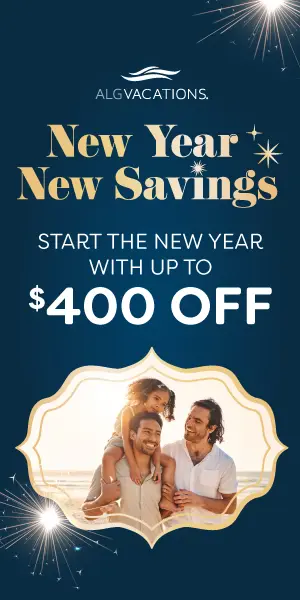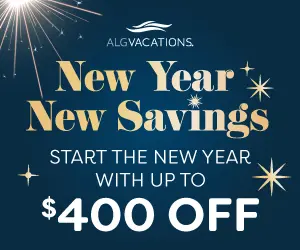What Travel Agency Owners Need to Know about Incentivizing Their ICs
by Dori Saltzman
Photo: Shutterstock.com
Travel Market Report’s Distribution Outlook 2024 found that 70% of respondents self-identify as independent contractors (ICs). While some may operate as solopreneurs under a large host organization, many work for smaller agencies. For owners of these agencies, managing their ICs can often cause some – or a lot – of frustration.
Working with ICs means owners must accept that the ICs are completely independent, and, for the most part, can do what they want. Owners can’t tell them what to sell, how much to sell, how many hours they need to work, or how exactly they should be marketing themselves.
“You can’t tell them,” Christine Hardenberger, owner of Modern Travel Professionals, told TMR. “If you try to mandate it, you could wind up in a lot of financial trouble if the government decides you have employees and not ICs.”
Lauren Doyle, president of The Travel Mechanic, agreed.
“You can’t make someone hit a sales quota,” she said.
Hardenberger admitted it can be frustrating.
“But the alternative is you have employees and that’s a whole other kettle of fish.”
How then can travel agency owners with independent contractors get them to do what’s needed to make the business successful if they can’t require anything?
“You have to figure out how to motivate your ICs,” Hardenberger said.
In conversations with two agency owners and two Host organization leaders, TMR discussed what it means to motivate and incentivize ICs, what can and can’t be required in terms of incentives, and examples of incentive programs that have paid off. We also discussed how to identify which ICs are more likely to buy into incentive programs, why not every incentive has to require a monetary reward, and offer a few best practice tips.
Positive reinforcement is the name of the game
“It really comes down to a carrot versus a stick,” Jackie Friedman, president of Nexion Travel, told TMR.
Mostly that’s because owners can’t punish ICs, simply because they can’t require anything in the first place, including participate in a rewards or incentive program.
“You can’t penalize someone for not doing something, but you can incentivize them for doing it.”
Oftentimes, the difference is in the wording.
For instance, if an owner wants to offer different commission splits for preferred and non-preferred suppliers.
“You don’t say, our commission split is 90/10, but we’re only going to give you 85% if you sell non-preferred,” Friedman said. “Say, instead, the commission split is 85% but we’ll give you 90% if you sell preferred.”
Another thing owners can do, both Friedman and Jen Cochrane, CEO of Gifted Travel Network, said, is require certain things in order to opt into eligibility for things like higher commissions or reward or recognition programs.
“You can require them to do certain things in order to have certain types of access,” Cochrane said.
“There are different creative ways that could be meaningful where you put an incentive in place for someone selling something that you prefer them to sell. But if they sell non-preferred, they don’t have that same opportunity,” Friedman added.
For instance, Friedman said, Nexion’s sales recognition program only counts sales with preferred suppliers.
Examples of what’s worked for owners
Short terms sales push
“I use a bunch of different incentives,” Hardenberger said.
Both this year and last, when her agency was falling short of its Disney sales goals, she put an incentive program in place to drive sales.
Last year, she offered her ICs increased commission on Disney trips booked within the specific period she needed the boost.
“That was very successful for me,” she said.
This year, advisors are being encouraged to sell Disney vacations that travel before Sept. 28. The incentive combines perks for the clients – a gift card and the chance to win a small trip – along with the chance to win Disney swag for themselves.
“Every booking is an entry… I’ve been giving away different things that I’ve gotten from Disney over the years. I have a lot of Disney specialists, so that’s very popular.”
Overall sales goals
Hardenberger also has an overall sales contest that goes all year, offering up incentive trips in 2025 to the top ICs in different categories: overall, top cruise seller, top all-inclusive, and most improved.
That last one is extra important, she said, “Otherwise it’s always the same people who win those things. I wanted to give somebody else a chance.”
Non-sales related goals and incentives
The Travel Mechanic’s Doyle looks beyond sales goals for her some of her incentive programs.
Knowing that summer is a slow season for her ICs, she launched three programs – one each in June, July, and August. Only July’s related to sales. (An overall sales goal not tied to any particular supplier.)
“For June, we did a social media contest and whoever had the most followers and the most engagement on social media for the 30 days got a prize,” she said.
About half of her team participated, and even though only one person got a prize (some of Doyle’s favorite travel items), everyone was a winner.
“The people that did participate, everyone great their social media. People had great engagement,” she said.
And it wasn’t just that participants grew their social media, they learned more about what works and what doesn’t. Each week of the contest, she and her ICs met to talk about what they learned, sparking engaging conversations that everyone benefited from.
In August, Doyle is running a behind-the-sales projects contest.
“The get to pick whatever project they want to work on and they have to complete it, whether it’s a destination guide, an email series, a lead magnet, or anything in the back office that they need to carve out time to do,” she explained.
Participants have to tell Doyle what project they’re picking on Aug. 1 and she’ll pick a winner from among those who have completed their project and have had the “most success” on Aug. 31.
“The reasoning for August is to get people to do the work… August is not a very busy time,” she explained.
Incentive trips
Putting incentive travel up for grabs is a great way to motivate ICs.
“Let’s say as an agency owner, you get two invitation to Utopia of the Seas pre-inaugural. You may use that as an incentive to reward folks that show the greatest growth on preferred suppliers,” Friedman said.
Some owners who don’t receive fam offers from suppliers might balk at the extra expense required to fund such trips.
Hardenberger doesn’t look at it that way.
“It’s worthwhile to me to lay out $1,500 for a three-night cruise,” she said. “Utopia right now is pricing out at $1,500 next spring for two people. That’s worthwhile if they book 30 trips. I’m coming out ahead.”
Another “trip” owners can offer up is admission to the national conference for whichever Host or consortia the agency belongs to.
That’s something Doyle did last year.
“That was a sales contest, so the most booked sales a month before the conference. It was a win/win because my agent got her conference fee paid,” she said.
This year, she’s added an extra week to the contest period. So far it’s neck and neck between five of her advisors.
“I may give two prizes: most booked trips and the highest sales.”
Random giveaways
Not all incentives have to be tied to a specific goal or program.
Hardenberger said she sometimes sends out a little something to everyone on the team, like when the agency overall had a great month.






















